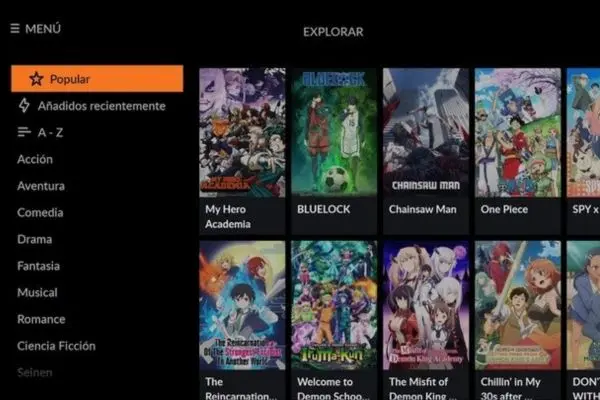Anúncios
Discover the best free online courses for electrical engineering that can help you advance your skills and knowledge in this fast-evolving field.

What are online courses for electrical engineering?
Online courses for electrical engineering are educational programs designed to provide in-depth knowledge and training on various aspects of electrical engineering, often at no cost.
These courses cover a wide range of topics, including circuit design, power systems, renewable energy, and electronics.
Whether you’re a student, recent graduate, or working professional, these courses offer a convenient way to learn or enhance your skills without the need for a traditional classroom setting.
One of the key benefits of online courses is flexibility. You can take these courses at your own pace, fitting them into your schedule as you see fit.
Many courses are offered by top universities and institutions, ensuring that you receive high-quality education from reputable sources.
Additionally, online learning often includes interactive elements, such as quizzes, assignments, and projects, allowing you to apply the concepts you learn in real-world scenarios.
In the next sections, we will highlight the top 5 free online courses for electrical engineering, covering various specializations and levels of expertise.
Whether you’re looking to build a strong foundation or delve into advanced topics, these courses are an excellent starting point.
5 best free online courses for electrical engineering
Are you looking to enhance your electrical engineering skills without the hefty price tag of traditional education?
Free online courses offer an excellent way to gain valuable knowledge and stay competitive in this dynamic field.
In this guide, we’ve compiled the 5 best free online courses for electrical engineering, perfect for both beginners and experienced engineers.
These courses provide flexible, high-quality education from reputable institutions, giving you the tools to succeed in your career while learning at your own pace.

1. Introduction to Electrical Engineering – Coursera
One of the most popular free courses for electrical engineering is offered by Princeton University on Coursera.
This Introduction to Electrical Engineering course provides a comprehensive overview of key concepts, including electrical circuits, signals, and systems.
Designed for beginners, this course lays a solid foundation for anyone interested in pursuing electrical engineering as a career.
The course is structured into multiple modules, each focusing on different aspects of electrical engineering. Topics include:
- Basics of electrical circuits and their applications
- Understanding signals and how they are used in communication systems
- Analysis of electrical systems through mathematical models
The interactive nature of the course, with quizzes and hands-on assignments, ensures that students not only learn theoretical concepts but also gain practical skills that can be applied in real-world scenarios.
- Platform available: Coursera
- Is it free? Yes (with an option to purchase a certificate)
- Differentials: Offers practical examples, includes quizzes to test knowledge, flexible schedule
- Key functionalities: Introduction to circuit design, electrical signals, and systems
2. Fundamentals of Electrical Engineering – edX
For those looking to deepen their understanding of electrical engineering, MIT’s Fundamentals of Electrical Engineering on edX is a must.
This course covers a broad range of topics essential for any electrical engineer, from electromagnetism to electronic circuits.
What sets this course apart is its focus on both theoretical and practical knowledge.
You will learn about electrical systems in-depth, with opportunities to explore how these systems are applied in industries like telecommunications, power distribution, and renewable energy.
The course is ideal for both students and professionals who want to expand their expertise in electrical engineering.
It’s taught by MIT professors, ensuring the highest quality of education.
- Platform available: edX
- Is it free? Yes (with an option to purchase a certificate)
- Differentials: Taught by MIT professors, high-quality course materials, hands-on projects
- Key functionalities: Electromagnetism, circuits, practical applications of electrical systems
3. Electrical Power Systems – FutureLearn
If you’re interested in the power side of electrical engineering, FutureLearn’s Electrical Power Systems course is a perfect choice.
This course focuses on the generation, transmission, and distribution of electrical energy, making it particularly valuable for engineers working in the energy sector.
The course also covers renewable energy systems, exploring how solar, wind, and other renewable sources are integrated into the power grid.
You’ll learn about the challenges of managing these systems and how technology is evolving to address them.
- Platform available: FutureLearn
- Is it free? Yes (with an option to purchase a certificate)
- Differentials: Covers energy management and renewable energy systems, taught by industry experts
- Key functionalities: Power generation, transmission, distribution, and renewable energy
4. Introduction to Electronics – Coursera
Georgia Tech’s Introduction to Electronics on Coursera is another excellent option for electrical engineering students and professionals.
This course is designed to teach the basics of electronic circuits, semiconductors, and transistors—fundamental building blocks in electrical engineering.
The course is particularly useful for those who want to explore how electronic components work and how they are used in designing complex electrical systems. Topics include:
- Understanding the role of semiconductors in electrical circuits
- How transistors are used as amplifiers and switches
- Basic circuit design and analysis
This course is well-structured, with video lectures, quizzes, and practical assignments that reinforce learning.
- Platform available: Coursera
- Is it free? Yes (with an option to purchase a certificate)
- Differentials: Clear explanations of complex topics, quizzes to reinforce learning, flexible timeline
- Key functionalities: Electronic circuits, semiconductors, transistor design
5. Renewable Energy in Electrical Engineering – OpenLearn
The final course on our list is OpenLearn’s Renewable Energy in Electrical Engineering.
This course focuses on the growing field of renewable energy, covering how solar, wind, and other renewable sources are transforming the electrical engineering industry.
The course is designed for professionals and students who want to learn more about sustainable electrical systems and the role of renewable energy in the future. You’ll explore topics like:
- Solar energy: how photovoltaic systems work and are integrated into the grid
- Wind energy: the mechanics of wind turbines and their impact on energy systems
- The challenges and opportunities of transitioning to renewable energy
- Platform available: OpenLearn
- Is it free? Yes
- Differentials: Focus on renewable energy, sustainable electrical systems, self-paced learning
- Key functionalities: Solar power, wind energy, sustainable electrical solutions
Which is the best online course for electrical engineering?
The best course for you will depend on your current skill level and career objectives.
If you’re just starting out, Introduction to Electrical Engineering on Coursera is an excellent choice for building a strong foundation in the subject. This course covers essential topics like circuit design, signals, and systems, making it ideal for beginners.
On the other hand, if you’re already familiar with the basics and want to specialize in a specific area, MIT’s Fundamentals of Electrical Engineering on edX or FutureLearn’s Electrical Power Systems are excellent options.
These courses provide deeper insights into complex electrical systems and their real-world applications.
For those interested in renewable energy, OpenLearn’s Renewable Energy in Electrical Engineering offers valuable knowledge on sustainable energy solutions, which is a growing area of focus within the electrical engineering field.
Finally, if you’re fascinated by electronics and want to explore how electronic components function, Georgia Tech’s Introduction to Electronics is the perfect course to enhance your understanding of semiconductors, transistors, and basic circuit design.
In conclusion, each of these courses offers unique benefits depending on your career goals.
With the flexibility of online learning and the expertise of world-class institutions, these courses provide an excellent opportunity to advance your knowledge in electrical engineering.
What to expect from online courses for electrical engineering
When you opt for online electrical engineering courses, you can expect a rich and flexible learning experience that provides access to a wide range of educational content.
Most of these courses are designed by universities and industry experts, ensuring that the material is of high quality and meets the needs of both beginners and experienced electrical engineers.
The content is structured to provide a comprehensive understanding of fundamental principles and practical applications, making the learning more accessible and applicable to everyday professional life.
In addition, online electrical engineering courses are designed to be interactive and practical.
Many of them include quizzes, hands-on exercises, simulations, and projects so that students can apply what they are learning to real-world situations.
This not only reinforces theoretical concepts but also helps develop critical skills needed to solve complex problems in the field of electrical engineering.
The flexibility of being able to study at your own pace allows you to balance learning with other professional or personal responsibilities.
Ultimately, you can expect these courses to provide opportunities to advance your career.
By completing a course, especially if certification is involved, you can demonstrate your commitment to continuous improvement and your up-to-date skills to potential employers.
Even if the course is free, the knowledge gained and practical application to your career can open doors to new job opportunities and promotions in the electrical industry.
Why you should consider free online courses for electrical engineering
Free online courses for electrical engineering offer a flexible, accessible, and cost-effective way to enhance your skills and stay competitive in the field.
Whether you’re looking to build a foundation in electrical circuits, dive into the complexities of power systems, or explore renewable energy solutions, there’s a course that fits your needs.
The courses we’ve listed are all taught by reputable institutions and provide high-quality education at no cost.
Many of them also offer certificates for a fee, allowing you to validate your knowledge and improve your career prospects.
With these courses, you can learn at your own pace, from anywhere in the world, without the financial burden of traditional education.
So whether you’re a student, a recent graduate, or a working professional, enrolling in these free online courses is a smart step toward advancing your career in electrical engineering.















